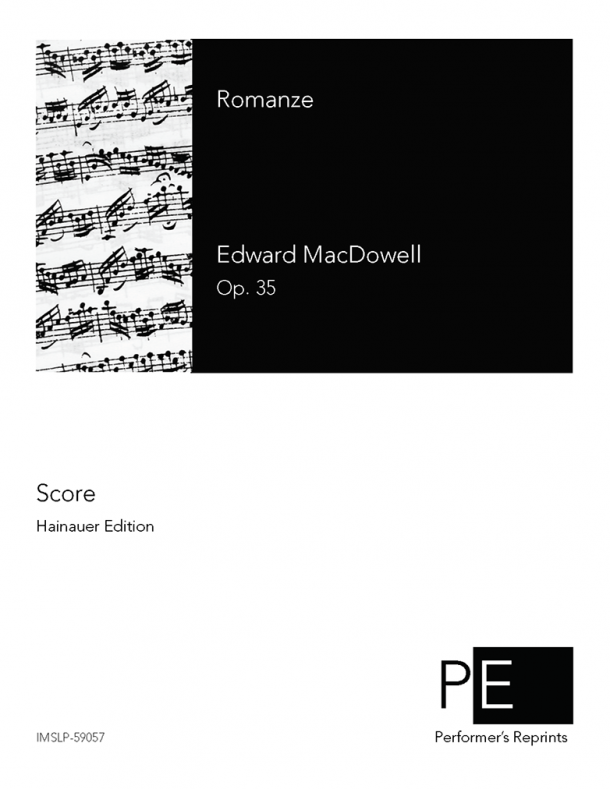Obscure Music Monday: MacDowell's Romanze
Edward Alexander MaDowell (Dec. 18, 1860 - Jan. 23, 1908) was an American composer and pianist, born in New York City. He was a part of the Second New England School, known more commonly as the Boston Six. MacDowell wasn't born in to a musical family, but he took music lessons from a Columbian violinist, Juan Buitrago, who lived with the MacDowell family. Buitrago's friends also taught young MacDowell before his mother, took him to Paris, where he received a scholarship for international students at the Paris Conservatory. He was there for two years, and was top in his class before he moved on to Dr. Hoch's Conservatory in Frankfurt Germany, where he studied piano with Carl Heymann, and composition with Joachim Raff. Franz Liszt visited the conservatory while MacDowell was there, and went on to recommended his works be performed, and introduced him to a major music publisher.
After a time in Germany, and he returned to the states in1888, and made Boston his home until 1896, when he was appointed professor of music at Columbia University, where he created their first music department. During the summers, MacDowell lived in New Hampshire, and found that setting to be highly conducive to composing.
MacDowell's work for cello and orchestra, Romanze, was written in 1888, and dedicated to his friend, the great cellist David Popper. The main theme is presented right at the beginning; a triplet phrase in the cello, a part of a bittersweet and longing motif that travels throughout the four-minute work. The orchestral accompaniment is nothing particularly difficult or profound, but certainly not thin or watery; it provides just the right support. Things turn a bit brighter at the end, like the clouds are clearing away, as it finishes off in a major key.
Here's a recording of this wonderful work for you to enjoy!


